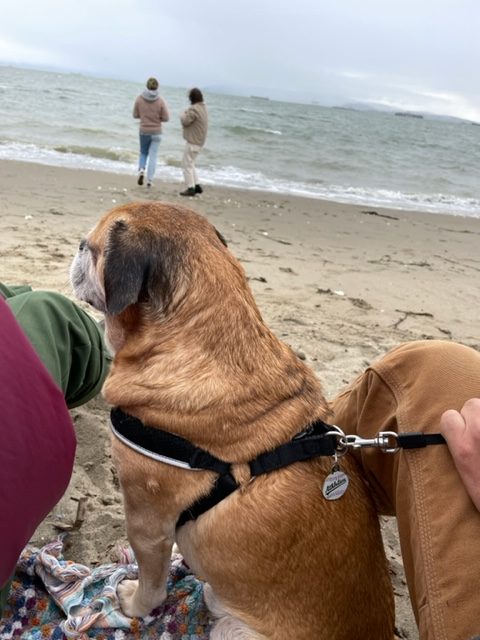-
Arkansas Black
We bought apples from the farm table at the Hogs and Hens Festival in Abbeville, and my favorite has got to be Arkansas Black: The crunchiest apple ever, with a durable skin that you have to really bite through, but that makes them good for storing or shipping. I had a bite of a Jonagold and it was all but mushy. NOPE. It’s a bold name, Arkansas Black. The color is red as rich wine, and the flesh creamy inside. If I could buy those regularly, I would, but as a once-in-a-lifetime treat, delightful. Similarly, this road trip is not something I can do every day, but at least I…
-
Tracing the Dunns
We left Georgia and crossed into South Carolina at the Savannah River, where one finds the boundary line, today. I looked on the Native Lands map and it said we were in Muscogee lands. I imagine it was Muscogee land back in 1830 but at that time, the John Dunn family had a plantation, and under their possession they also had a small group of enslaved persons — a middle-aged woman, a younger man, and four children, whose names have been lost to time. The Dunns gave their name — or took possession of — the local creek that ran through their property. Dunn Creek is findable on Google maps…
-
Marching through Georgia
It was a rainy kind of day, starting with light drizzles, turning pretty nasty, dumping buckets of rain, lighting and thunder and a few spinouts (by other cars). Not what we’re used to in dry California. It was lovely and a little alarming, but afterward, the skies broke open and beautiful sun rays flashed across the clouds as the sun set. What a pretty thing to see. We started out from Jasper, Alabama, and went to Birmingham to pick up my sister from the airport, and then headed east to Atlanta. Stopped to pick up coffee and snax from a gas station (gas $3.26/gallon). From the back seat of the…
-
Turbulence
It was a long day that began very early in my cozy bed with cats and husband, and alarm ringing at 3:30 a.m. The aircraft had a mechanical issue that added almost an hour to our wait time on the tarmac, and was followed by a bumpy ride, and steeplechase through Dallas-Fort Worth’s huge airport, and barely a bathroom stop before sliding into my seat on the last leg to Birmingham. The first leg was so bumpy I dry-swallowed a Xanax and it hit me in time to keep me from clawing my seat-mate as we rumbled above brown Texas, green Louisiana and Mississippi, and red Alabama. I don’t enjoy…
-
Hitting the Road
I am heading out on Tuesday to the East Coast, via the Deep South, to New England, following the course of our family history back through time. I’m starting roughly where we left off with slavery, in Alabama, and working my way backward through Georgia, South and North Carolina, up to Virginia; Maryland and D.C., then up via train to Boston and the Cape. We will end up at the Mayflower II, if all goes well. Accompanying me are my elder sister and a cousin, both of whom share my family history, and who were willing to come along for the ride. We are also planning to stop to see…



